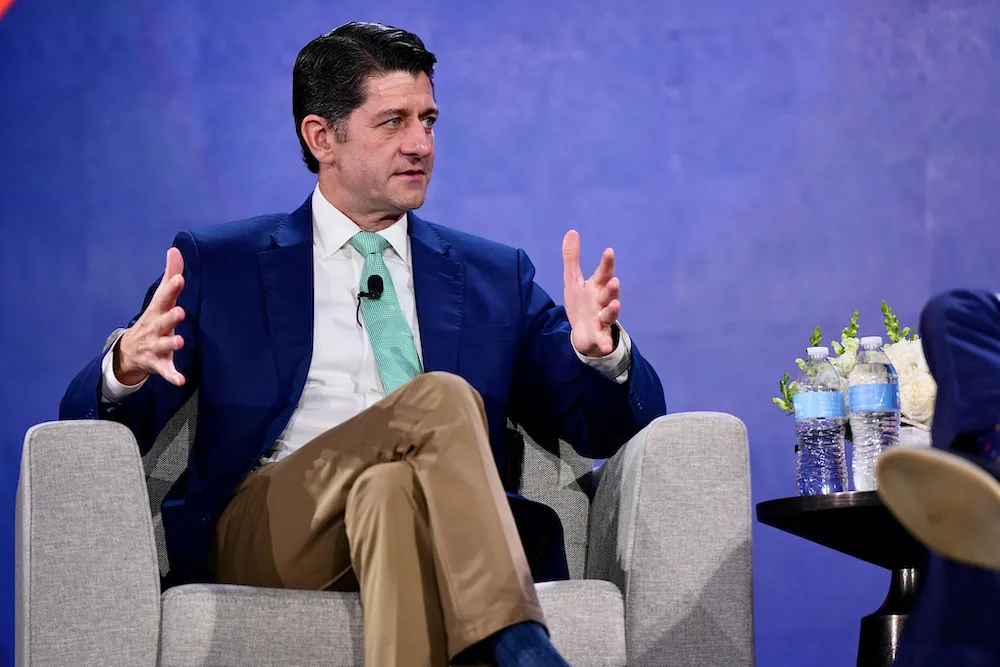Past White House administrations – including those headed by Democratic presidents – have not tried to enact a federal nursing home staffing mandate, former Speaker of the House Paul Ryan observed on Tuesday.
“Even the Obama administration didn’t do that,” Ryan commented, during a discussion with Direct Supply Founder and CEO Bob Hillis at the National Investment Center for Seniors Housing & Care (NIC) conference in Chicago.
Ryan, a Republican, served as speaker from 2015 to 2019, which was a period that included the last two years that Obama was in the White House.
While workforce pressures are widespread across the U.S. economy, the nursing home and senior living sectors are facing a “very unique” staffing challenge, given the “demographic crunch” caused by the drastic increase in older people who need services versus the dwindling supply of available younger workers, he acknowledged.
Still, Ryan emphasized an optimistic message.
“The point I’m trying to say is, it’s a good news story; this is not an unsolvable problem, it is a solvable problem,” he said.
The solution, in his view, lies in a combination of new technologies and more effective public policies.
On the tech front, he pointed to the coming “explosion” of machine learning, quantum computing and artificial intelligence that can be leveraged to help SNFs be more efficient while running on leaner staffing models.
On the policy front, he focused on immigration reform, describing a package that would combine border security and national security measures with guest worker programs and visas tailored to fill gaps in the labor supply.
A “technologically savvy” approach could create these types of targeted visa programs, increasing the flow of immigrants without taking jobs away from people already in the United States, or compressing wages. This is “always” the argument against immigration reform, but it no longer holds water in light of new tech, Ryan argued.
“It’s a 20th century argument,” he said.
The road to enacting such immigration policies will not be easy. After entitlement reform, immigration is “the hardest issue to deal with, politically,” Ryan said – but, he also sees immigration reform as inevitable, given not only labor market issues but pressing national security and other problems that must be addressed.
“I am convinced, like entitlement reform, immigration reform is going to get done,” he said. “For one reason, it has to get done.”
Although they will make a major positive difference, technological advancements and immigration reform will not be enough to completely address the labor shortages affecting nursing home providers. Ryan described other policies that he believes need to be pursued, such as changing the incentives and disincentives that people have for joining the labor force, in order to maximize participation.
And, he said that to achieve these goals, change is needed in Washington, D.C.
“We just don’t have the politics right, right now,” he said. “We have unserious politics.”
The current debacle over filling his former office of Speaker of the House is just one example of the problems that are forestalling progress. Ryan also pointed out that two-thirds of the U.S. population would prefer that both President Biden and former President Donald Trump bow out of the 2024 race.
“I would argue the party … who puts the first fresh face forward is going to win this election,” Ryan said.
Furthermore, he pointed out that the Congressional Review Act is a means by which the legislative branch can overturn recently enacted federal agency actions – such as the nursing home staffing mandate, should it take effect – if enough lawmakers are on board.
“You can repeal a recent rule, if you have Congress,” he said.



